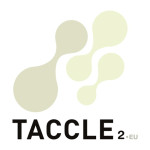Glogster is a perfect tool for pupils to present or communicate information. You can use it for creating posters, fact files, project boards or ‘how to…’ instructions. It also serves as a good entry level activity to blogging. You can put text, images, audio and video files on your Glog and add hyperlinks as well Full Article…
Make a map
Google maps allows you to pin notes, links and comments to places so instead of writing a worksheet you could create a work map. You’ll need a Google account before you can get started, you can sign up here. On the Google maps site click on “My Maps” and then “Create Map” you can then Full Article…
Science Songs
A classroom favourite is getting your students to write a song, poem or mnemonic to help them to remember a sequence. This could be the colours of the rainbow (Richard Of York Gave Battle In Vain), or the planets of the solar system My Very Easy Method Just Speeds Up Naming Planets Or the electromagnetic Full Article…
Time is an illusion!
Age: 7-12yrs Ease: *** Overview Understanding how the world and everything in it changes over time is essential in order to understanding the concept of a day, week, season, year and the general concept of ‘time’. The children will have the opportunity to analyse how an object changes over time, be it a plant growing, Full Article…
Share some science stories
From the combustion of carbon to the synthesis of a vitamin, every chemical reaction has a story. Using web 2.0 tools in the classroom, pupils can research, create and share the digital story of chemistry. Ask your students to; Create a Social Networking profile for a scientist explaining their discoveries. Find a list of scientists Full Article…
Looking at landscapes
Use Google Earth (or Google Maps if you haven’t got to grips with Google Earth!) Divide the class into groups and give each group a location. (You can use the line or path function on Google earth to do this) Give the class a series of tasks or questions. The less able group might be Full Article…





 English
English Nederlands
Nederlands Deutsch
Deutsch Italiano
Italiano Español
Español Português
Português Română
Română Cymraeg
Cymraeg